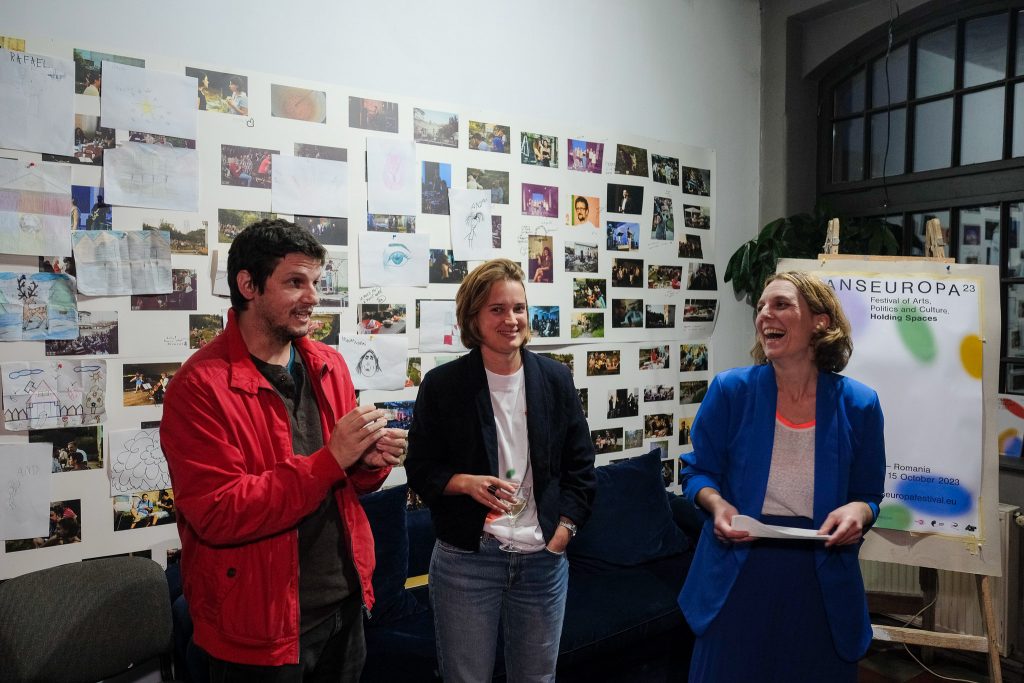Nov 28, 2023
Holding Space Transnational Assembly
The Holding Spaces Transnational assembly emerged from the previous assemblies explored our relationship to physical spaces, virtual spaces and mental spaces from different perspectives, particularly those of people facing exclusions.
Participants had the opportunity to ask questions, brainstorm ideas and opinions, and to exchange them from a transnational perspective, with individuals and representatives of local collectives from more than 10 different countries. The assembly included civic arts, individual reflection, group work, short speeches and cultural exchange. The aim of the assembly was to explore the commonality of social issues and building a community to find inspiration and hope in each other, to recognise community struggles, and to find a sense of principled solidarity.
The title of the assembly refers to:
- physical space: Cluj-Napoca is a city experiencing high gentrification and as a result the most vulnerable parts of its population is being pushed to the outskirts of the city, with less opportunities in job, access to culture and to public services. This is especially the case for the local Roma community which has been segregated for decades, as a result of the local decisions made by the municipality in place. Forms of urban exclusion are going on in many different parts of Europe, exacerbated by the cost of living crisis and property speculation.
- digital space: Cluj-Napoca is a digital hub for Romania and for the region of Transylvania, and is thereby one of the places where our digital life is created and managed, and so an appropriate place to talk about equality and exclusion..
- mental space: gentrification consequences are about more than our houses and homes – it is also about the urban and natural environments which in turn impacts our mental spaces. Being physically pushed out creates long-lasting mental barriers and limitations for those people seeing their access to the city centre so restricted that several generations born into those conditions will never feel welcomed in this city where they were born . Climate change and degradation changes the physical space we live in but also affects our mental wellbeing

